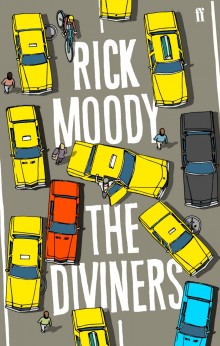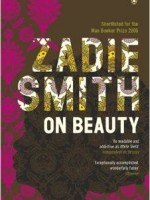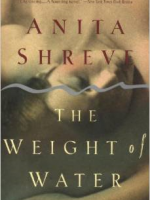 The Diviners
The Diviners
General Fiction
Jan 18 2007
567

Set mostly in New York City in the days after the disputed 2000 US presidential election, The Diviners is ostensibly the story of an independent production company’s attempts to get a TV mini-series about man’s lifelong search for water off the ground; in reality, Rick Moody’s latest is a sweeping commentary on contemporary America barely disguised as a novel.
Moody was once famously described as “the worst writer of his generation”, and in many ways The Diviners appears to have been written as a defiant response to that criticism. In it, he sets out to break as many rules as possible, with a plot that struggles to deserve the term, a cast of characters that multiplies continually right up to the final chapter, and a writing style that revels in appropriating language from medical, sociological and other disciplines in a manner that sometimes seems like nothing more than having fun with terminology.
The opening chapter, which follows a sunrise right across the world, has a kind of absurd beauty to it, even though for many it will be enough to make them want to put the book down. Persevering to chapter two offers even less reward: it focuses entirely on an old woman and her chronic bowel problems. And yet, despite itself, The Diviners does eventually grab the determined reader and then becomes oddly unputdownable. There is narrative here, but it’s not easily followed, it’s the kind of book that only comes together when the final page is turned.
In some ways it’s a book about television’s status as the primary way in which we encounter and process information these days, but in more ways it’s about who we are now, how we live and what we have become; not just in America, but in Western society in general.
A sense of everything being interconnected, set up in the overtly filmic first chapter, runs through the book. The narrative trundles slowly along as Moody introduces a new, somehow connected, character in nearly every chapter, continuing the tale from their point of view.
There’s Rosa Elizabetta, the lady with the bowel problem, whose daughter, Vanessa is an obese independent film producer. Vanessa takes a taxi ride with Ranjeet Singh who has ambitious ideas about the future of television. Vanessa’s PA, Anabelle has a bipolar bicycle courier and former outsider artist brother called Tyrone and is having a loveless affair with Thaddeus Griffin, Vanessa’s business partner and a former action movie star who voices an incredible (and incredibly sleazy) chapter where everything is described through the language of yoga postures. And on it goes
Because it is so wide-sweeping not just in its modern societal references (yoga, Botox, reality TV, outsider art, independent movie making), but in its sprawl of characters, The Diviners does manage to keep you reading; but like a lot of TV, it’s a book that leaves you feeling somehow empty, because no real lesson is learnt, no real conclusion is reached. The end is marked by a “To Be Continued ” feeling, a sense that these people’s lives will continue to be oddly intertwined, frustratingly unfulfilling, and they will all continue, despite their best attempts, to feel somehow disenfranchised.
At times the satire is subtle and superb, at others it plunges into absurdity – the United Beverages Corporation, the self-described “multinational entertainment and coffin provider”, reminds me of something Jasper Fford (Something Rotten) might come up with – but it is a read that rewards perseverance and afterwards, a bit of thought.
I’ve heard Moody is a James Joyce fan, and there is mileage to be gained from reading The Diviners through Ulysses-tinted glasses. The product placement – mostly Krispy Kreme Doughnuts – is pointedly sardonic but anchors the book in a very particular time and place; the American Dream analogy – immigrant cab driver abandons everything for an uncertain future as a TV mover and shaker – works; Moody’s use of obtuse terminology successfully reveals how language obscures meaning as often as it articulates experience; and there are definitely moments of genius here. Is The Diviners the Great American Novel it so desperately wants to be? For my money, not quite, but it certainly hovers close to the target. ![]()




